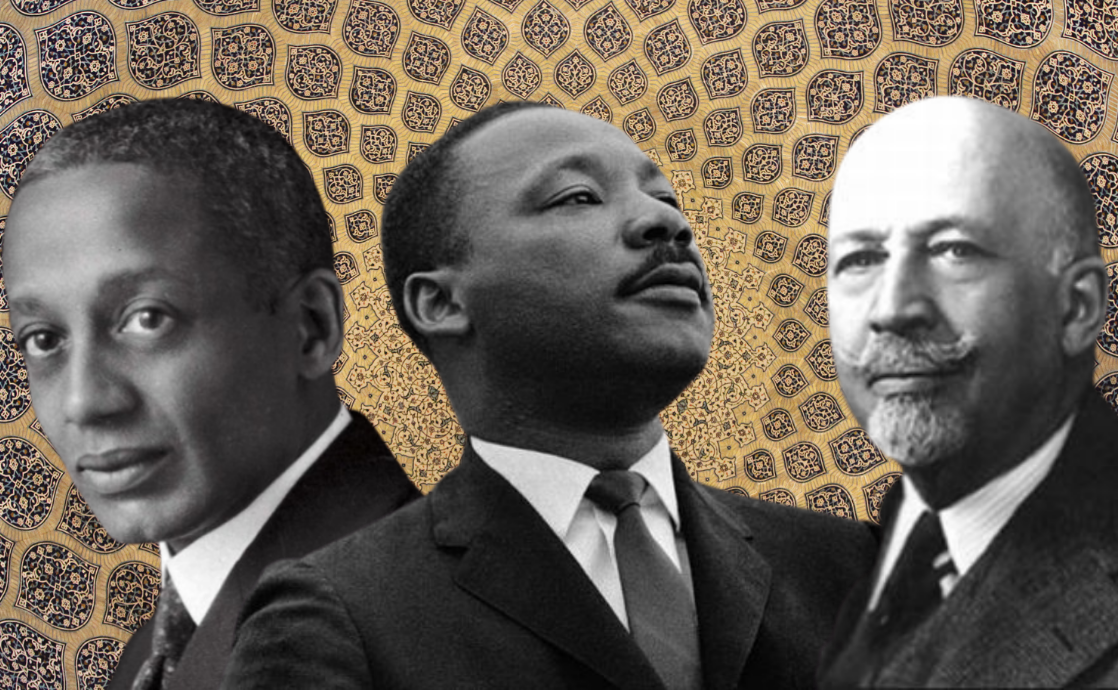In the realm of philosophy, few movements have yielded as profound an impact on ethical discourse and social justice as that exemplified by the teachings of the Bahá’í Faith. In particular, the ways in which Dr. Martin Luther King Jr. invoked the wisdom of significant Black philosophers illuminate the intersection of racial justice, spirituality, and philosophical thought. This article seeks to explore the intricacies of how these philosophical tenets resonate with Bahá’í teachings, offering a paradigm shift in understanding justice, ethics, and unity in diversity.
To fully appreciate Dr. King’s emphasis on Black philosophers, one must first acknowledge the rich tapestry of thought that these figures have contributed to the larger philosophical landscape. Philosophers such as W.E.B. Du Bois, Booker T. Washington, and Alain Locke have delved deeply into the complexities of identity, race, and social justice. Each contributed distinctive viewpoints that challenge prevailing norms and shape our understanding of equity and human agency. By examining their teachings through the lens of Bahá’í principles, one can see a compelling narrative unfold—a narrative that calls for radical transformation in individual and collective consciousness.
Dr. King articulated a vision where the philosophies of these thinkers were not merely academic pursuits but rather entwined with the moral fabric of society. At the heart of this vision lies the Bahá’í principle of the oneness of humanity. The notion posits that all people, regardless of race or nationality, are interconnected manifestations of the same divine source. This assertion inspires the pursuit of justice as a collective endeavor—not merely a struggle for one’s own rights but a commitment to uphold the dignity of all. This pivotal perspective urges individuals to shed prejudiced views and to embrace an all-encompassing sense of solidarity.
W.E.B. Du Bois, in his seminal work “The Souls of Black Folk,” introduced concepts that resonate profoundly with Bahá’í teachings. Du Bois’s idea of “double consciousness,” the internal conflict that arises from navigating between two disparate identities, echoes the Bahá’í understanding of the dual nature of humanity: spiritual and material. The Bahá’í Faith posits that each individual must reconcile these aspects to attain true fulfillment and contribute meaningfully to society. Dr. King, influenced by Du Bois, championed this reconciliation as both a social imperative and a personal journey, urging people to confront their internal divisions as a pathway to broader communal harmony.
In grappling with the ethical implications of advocacy, one inevitably encounters the philosophy espoused by Booker T. Washington, whose ideas emphasized education and self-reliance. Though Washington’s stance often stirred controversy, Dr. King found merit in his advocacy for empowerment within the African American community. The Bahá’í teachings echo this sentiment, laying down the principle that true empowerment stems from a combination of education, moral development, and collective action. The Bahá’í approach promotes the idea that as one elevates oneself, they simultaneously uplift others, thereby fortifying the social fabric. This pursuit is not a solitary endeavor, but rather a symbiotic relationship between individual growth and communal upliftment.
Furthermore, Alain Locke, often hailed as the father of the Harlem Renaissance, offered a philosophical framework that celebrated the cultural contributions of African Americans. His conceptualization of “cultural pluralism” aligns seamlessly with the Bahá’í advocate for diversity and the celebration of varied cultural expressions. Locke’s insistence on recognizing the dignity intrinsic to all cultures serves as a powerful reminder of the importance of inclusivity. In advocating for a pluralistic society, Bahá’í teachings prompt us to embrace our differences as sources of strength, urging a shift from mere tolerance to genuine appreciation and celebration of diversity.
Dr. King’s homage to these prominent philosophers cannot be understated; it reflects a deep reverence for their contributions while simultaneously challenging society to be better. King encapsulated the urgent call for justice, weaving philosophical insights into the fabric of his activism. He recognized that words born from deliberate contemplation could catalyze transformative social change. The Bahá’í Faith highlights this eloquently, proposing that humanity is on the cusp of a new age of enlightenment—a period ostensibly ushered in by profound reflection and moral awakening.
This intersection of philosophy, spirituality, and social activism presents an intriguing paradigm for contemporary discourse. In an age characterized by polarization and discord, reigniting curiosity towards the teachings of Black philosophers as viewed through the Bahá’í lens offers a refreshing approach to understanding justice and ethics. By examining how these philosophical frameworks intertwine, individuals are not only invited to engage in critical thought, but also to grasp the profound implications of collective action rooted in shared moral principles.
Ultimately, the teachings of the Bahá’í Faith, as informed by the wisdom of Black philosophers, illuminate a path forward. They provoke essential questions about identity, humanity, and purpose within a societal context that often seems fragmented. By embracing the interconnectedness of humankind and fostering a spirit of unity in diversity, the philosophical discourse of figures like Dr. King serves as a catalytic force in reshaping our narrative. The path to justice and equality is inherently collective, beckoning a call to action that transcends individual aspirations—a promise underscored by the teachings of both philosophy and faith.
